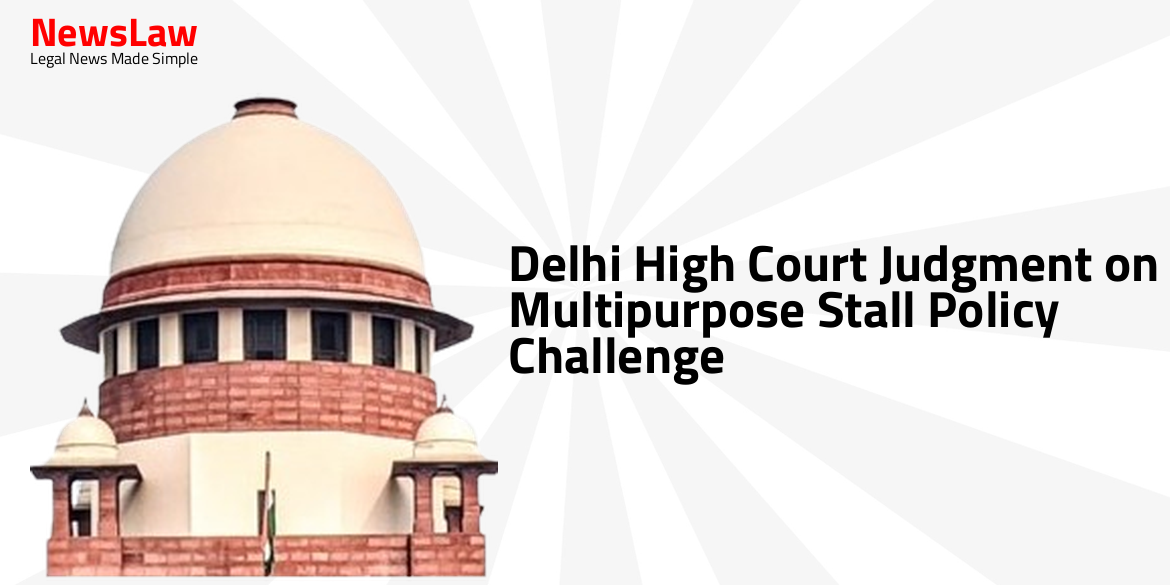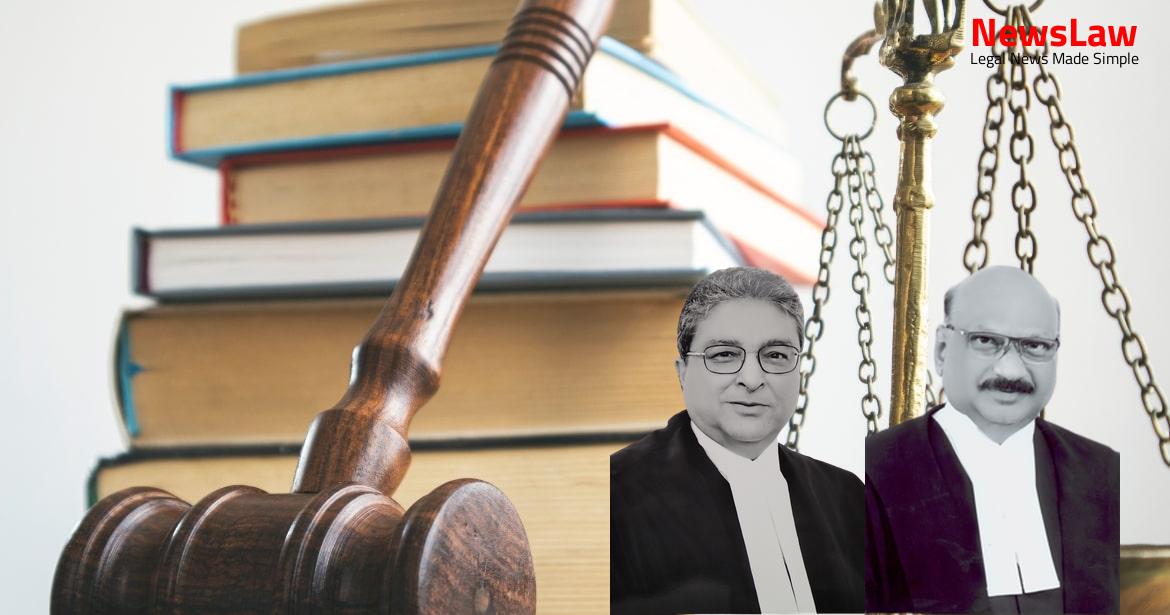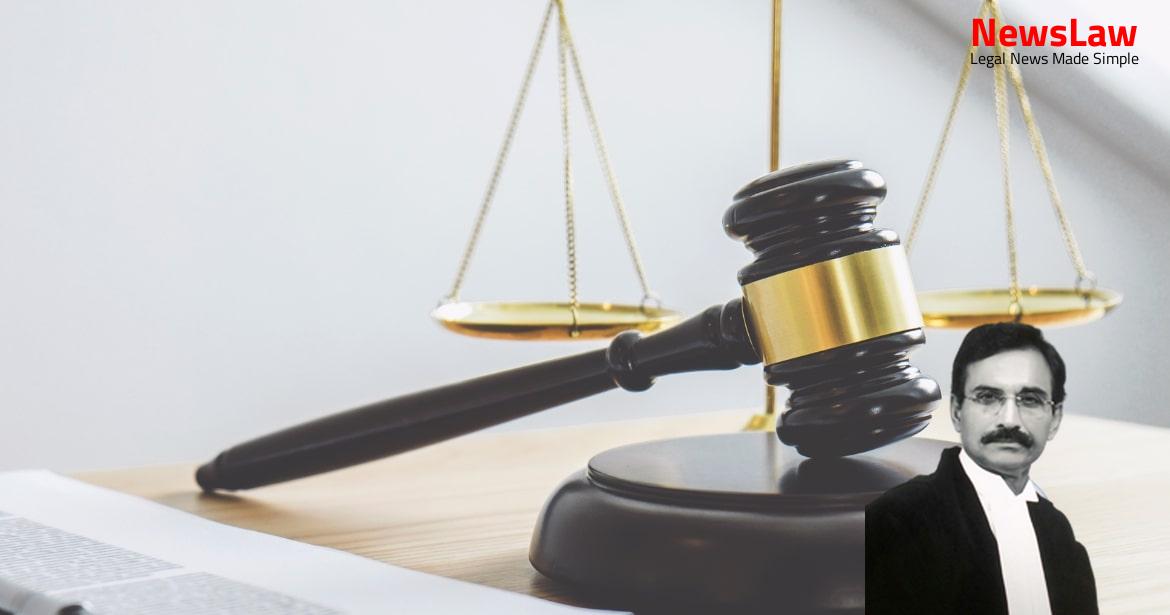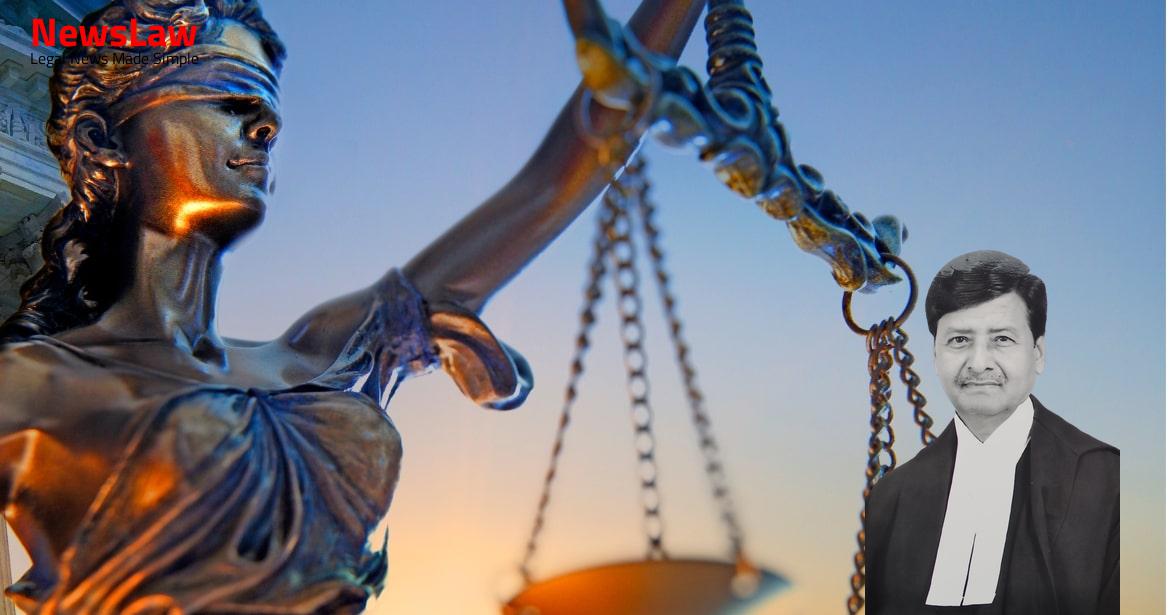The recent judgment by the Delhi High Court regarding the challenge to the Multipurpose Stall Policy has brought clarity on the issue. The case involved petitioners running stalls at different railway stations and the Northern Railway as the respondent. The court analyzed the provisions of the 2017 Policy and carefully considered the arguments put forth by the petitioners. Let’s delve deeper into the details of this significant legal case and understand the implications of the court’s decision.
Facts
- Petitioner no.1 runs three MPS at Bareilly Railway Station, Petitioner no.2 runs one MPS at Moradabad Railway Station, and Petitioner no.3 runs one MPS at Haridwar Railway Station.
- The petitioners were initially running miscellaneous stalls governed by Commercial Circular No. 96 of 2007 but were forced to convert to MPS by Northern Railway in 2017 based on the 2017 Policy.
- The petitioners and Northern Railway entered into Master License Agreements on different dates to confirm the license arrangements.
- The tenure of the petitioners’ licenses was initially until 21.12.2022, extended until 27.02.2023 due to a force majeure event (Covid-19 lockdown).
- The Master License Agreements and extension letters have been challenged in the petitions.
- Clause 5 and Clause 11 of the 2017 Policy by the Railway Board in Delhi have been specifically challenged in the petitions.
- The petitioners were directed to vacate their MPS on 27.02.2023.
Arguments
- Petitioners argue that the extension of the contract due to Covid-19 is arbitrary, especially as other units in different railway zones have been granted longer dies non period.
- They claim that the reduction in foot traffic prompted the railway authorities to reduce license fees from June 2020 to March 2022, and thus, petitioners should also be entitled to an extension proportionate to the fee reduction.
- Petitioners challenge Clause 5 of the 2017 Policy, stating it violates constitutional articles by taking away the right of license renewal and forcing them to compete against larger companies.
- They seek a writ of mandamus to compel the relevant railways to renew and extend their licenses.
- Petitioners argue that they have a legitimate expectation of license renewal throughout their lifetime and for future generations.
- They rely on various court decisions to support their claims of arbitrariness and violation of rights.
- Petitioners assert that the 2017 Policy is discriminatory and arbitrary in extending applicability to existing stalls/trolleys.
- They argue that the Karnataka High Court dismissed a similar challenge against the 2017 Policy, but petitioners contend it is legally unsound and arbitrary.
- Petitioners claim coercion, economic duress, and unequal bargaining position in converting their stalls to MPS units under the 2017 Policy.
- They contest the railway’s refusal to renew licenses and challenge the policy’s restrictions on renewal.
- Petitioners maintain that they were not informed of the policy’s no-renewal clause and that it curtails their rights to livelihood and equal opportunity.
- They argue against power imbalances and lack of renewal opportunities for small miscellaneous/multipurpose stalls/trolleys.
- Petitioners seek renewal based on the South Central Railways judgment and claim arbitrary actions by the respondents.
- They contest the jurisdiction of the court and highlight exclusive jurisdiction clauses in license agreements.
- The petitioner signed a contract for a non-renewable five-year period with full knowledge of the terms.
- The petitioner cannot now claim ignorance or try to go back on the terms of the contract after enjoying its benefits for the entire duration.
- The judgment cited by the petitioner pertained to Catering Policy, which is not applicable to the current case involving a Multipurpose Stall Policy.
- The court rejected the petitioner’s attempt to leverage past judgments to renew their contract post completion.
- The court emphasized that the petitioner’s contract falls under a different policy than the ones referred to in the judgments.
- The court refused to allow the petitioner to benefit from changing policies retroactively after benefiting from the existing contract terms.
Analysis
- Clause 5 and 11 of the 2017 MPS Policy do not allow for renewal or extension of MPS units, but existing licensees can participate in fresh bids if they meet eligibility criteria.
- The doctrine of legitimate expectation cannot be claimed as a right in itself, but can only be used if the denial of a legitimate expectation leads to a violation of Article 14 of the Constitution.
- It is well established that a license is revocable at the discretion of the grantor and does not create any interest in the property for the licensee.
- The petitioners’ claim of a legitimate expectation for renewal lacks merit as per the factual background of the cases.
- The petitioners cannot claim a vested right entitling them to perpetual renewal of the license granted to them.
- The challenge to Clause 5 and 11 of the 2017 Policy is deemed unsustainable based on the express terms of the license and policy provisions.
- The extension of license period due to Covid-19 was carried out in accordance with force majeure provisions outlined by the Railway Board.
- The determination of extension periods for licenses in relation to force majeure events was not done on an arbitrary basis.
- The specific part of the judgment discussed in this extract is Part STA.
- This part of the judgment is key to understanding the decision made by the court.
- It provides important details and reasoning behind the court’s decision.
- The court’s analysis and findings in Part STA are crucial to the overall judgment.
- This section likely delves into specific legal statutes or regulations relevant to the case.
- Judicial review of a policy decision and issuing a mandamus to frame policy are distinct.
- The courts interpret laws creatively.
- A legitimate expectation does not always guarantee relief.
- No public body has arbitrary renewal refusal powers.
- Past relaxations in policy don’t guarantee future assistance.
- Mandamus cannot be issued to prompt the enactment of laws or rules.
- Individual license agreements and the 2017 Policy have arbitration clauses for grievances related to extension insufficiency or claims of damages due to the Covid-19 situation.
- Petitioners can invoke the arbitration clause and initiate appropriate proceedings if they are aggrieved by extension insufficiency or wish to claim damages.
- The arbitration clause is applicable to licensees who have not formally executed the license agreement yet.
Decision
- Existing stalls/trolleys have the option to convert into Multi Purpose Stalls (MPS) or continue till the expiry of the current agreement.
- Conversion to MPS gives a tenure of 5 years from the date of conversion.
- Zonal Railways will standardize and allocate space for new MPS after the expiry of current agreements.
- Applicant opted to convert their stalls/trolleys into MPS and agreed to follow all conditions and rules.
- Existing stalls can convert to MPS by paying the quoted License Fee for similarly placed MPS units.
- The tenure of 5 years for MPS commences from the date of conversion.
- Petitioners requested conversion of their miscellaneous stalls/trolleys to MPS.
- Court dismisses petitions as there is no merit, but grants a 3-month period for petitioners to vacate stalls.
Case Title: GANESH PUJARI Vs. UNION OF INDIA & ORS. (2024:DHC:4452)
Case Number: W.P.(C)-5031/2024



